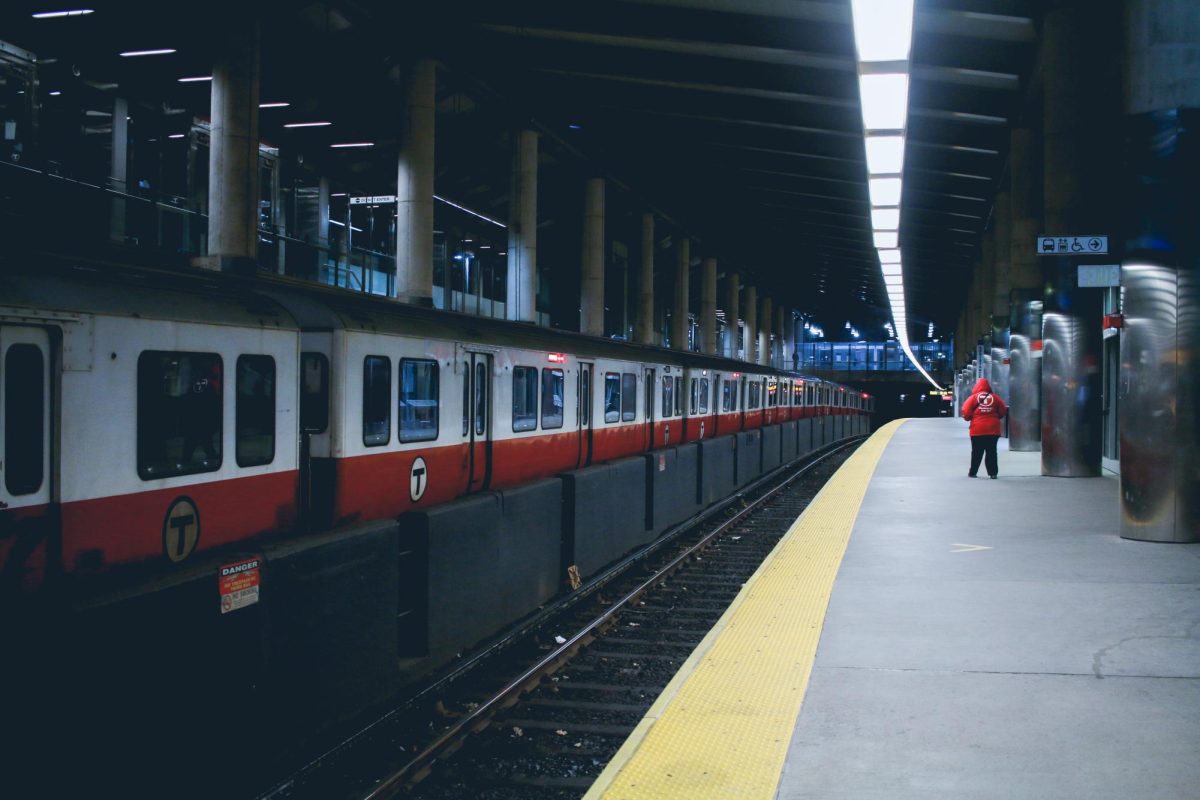Many students at UMass Boston, myself included, take the MBTA Red Line everyday. Its issues are widely known: Trains stop in the middle of tracks, cars overheat and facilities are overcrowded. Beyond the lack of care, though, the system allows us to eavesdrop on community conversations.
“The company’s monthly balance turned out to be negative,” a voice will whisper on the phone. “You will be terminated next month.” Meanwhile, a similar commuter in a rush: “I will be running a couple minutes late, the train stopped at Porter.” All of the elements of Red Line transport make it more than a rapid transit system, but a living element of the Boston community. Riding it everyday has made me aware that the line is its own ecosystem, and its current state is a reflection of the government’s lack of care towards its people.
As you commute on its carpeted seats, you might wonder how this relates to the government. It has everything to do with American society: Everyone is in their own worlds, alone with their thoughts. I have seen many issues arise on the Red Line, such as someone complaining about how they were not feeling well, or a tourist desperately looking for help. I have even seen a girl, no older than college age, collapsing on methamphetamine. Seeing her face and how no one looked at her made me reflect on how alone we are. Each of these times, none of the Boston natives helped, reflecting how the government and society doesn’t care about its people. The moment you’re deviant to society’s norms, you’re out.
In the theater of the Red Line, the concert hall is its cars. The overcrowding, dirtiness, bad lighting and all other elements that embody it display the issues with the government and society. The commonwealth does not care about funding necessary commodities for its people. At the same time, the Green Line goes through many wealthy neighborhoods of Boston. Its vehicles are clean, well lit and have a steady flow. The government prevents the improvements of the Red Line as a way of separating the people.
The individuals who ride the MBTA change throughout the day, but the importance of certain types of riders is displayed by the system. In the mornings, trains come frequently, ensuring the corporate people get to work. If you ride the Red Line in the morning, you will see men wearing suits with well polished shoes and women looking gorgeous with their Burberry coats and Neverfulls, holding a cup of coffee in their hands. As many of them depart at South Station, the few who remain are often from a different monetary background. During mid-day, students and many others have to wait up to twenty minutes for a train. At Harvard station, it’s a similar story. Many tourists wear full couture outfits while homeless people walk around in the midst of the crowd, forced to sleep on benches in the station.
The Red Line, similar to its historical context of red-lining, separates the people by their economic status. If you take the train at Alewife, you will ride through gentrified neighborhoods and areas of high-rent. Up until South Station, most stops are cleaned, safe and well-taken care of by the MBTA administration. As you enter Broadway, Andrew, and the rest, the stations are not taken care of. Many times, I’ve seen needles thrown on the floor at Andrew, or smelled the stench of trash and sewage at JFK/UMass. The MBTA administration only cares about its most affluent riders and places, while ignoring those who actually need it.
Like many negative aspects of society, the Red Line’s problems would be fixed with more funding and governmental care, allowing for better train services and improving the comfort of its riders. At the same time, providing better structure to decaying stations, such as JFK/UMass, while ensuring that its riders are safe is essential. A more equitable distribution of resources to the Red Line beyond South Station would help close the economic gaps of its riders. The better treatment of the Red Line in less-affluent areas of Boston should be a government priority. However, we are all well aware that the government does not care. Despite this, riders should protest and make campaigns to enforce a better service of the MBTA. Lastly, creating a sense of community and less individualistic behaviors would simultaneously create a more helpful Red Line and show compassion for those who need it.

